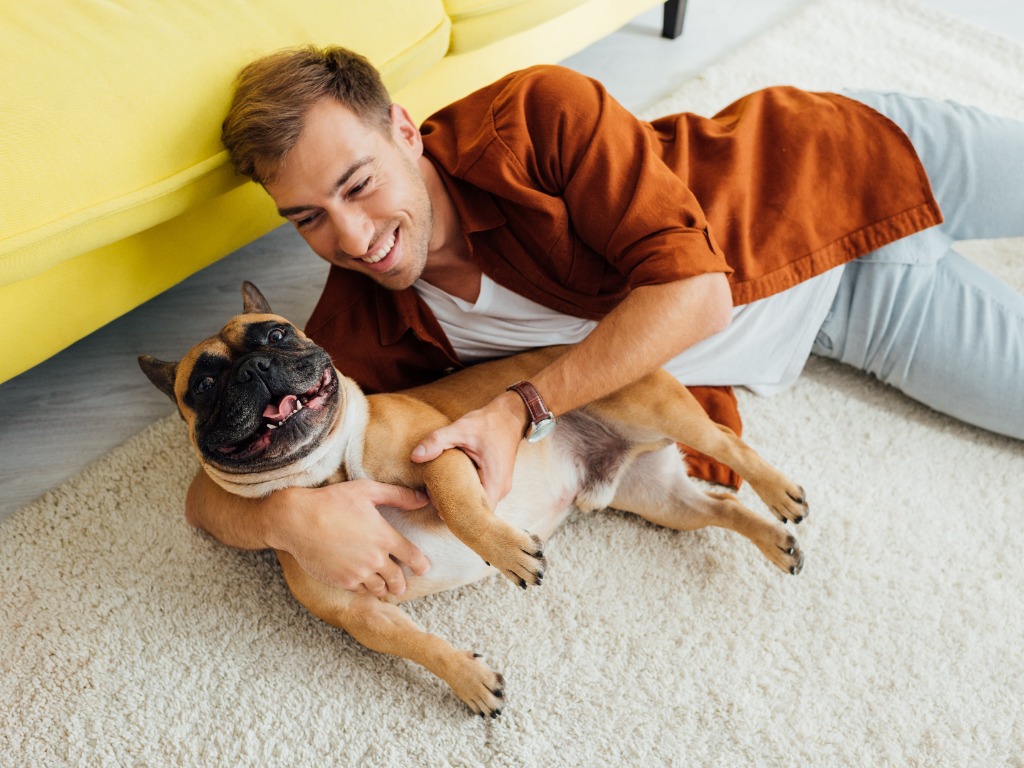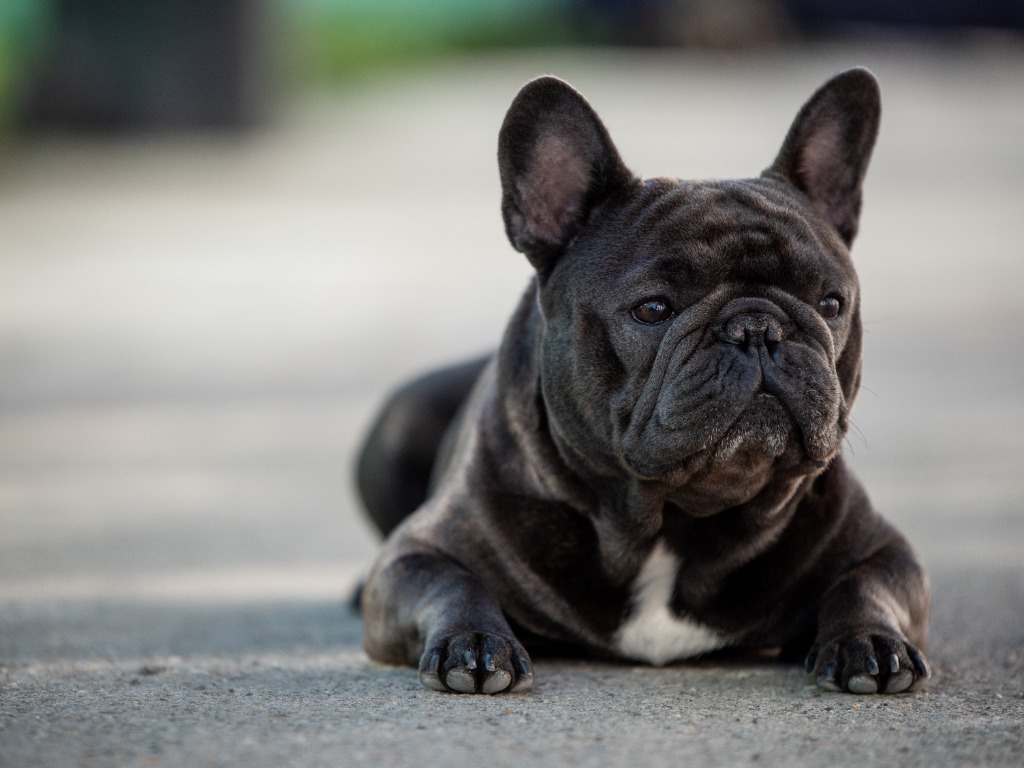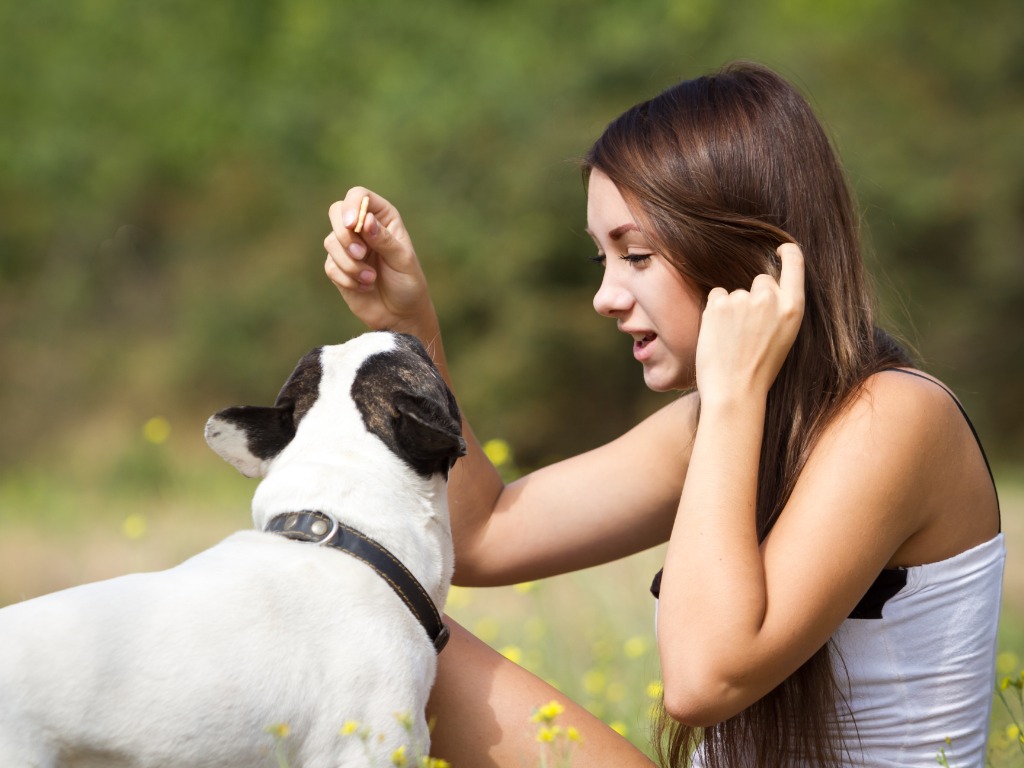Can French Bulldogs Be Dangerous? A Look at Their Temperament and Behavior
French Bulldogs, in general, are not dangerous as they are known to be friendly, affectionate, and gentle pets. However, like any dog breed, they can exhibit aggressive behavior under certain circumstances, such as if they are improperly trained or subjected to abuse.
Pet owners need to provide proper training, socialization, and consistent positive reinforcement to ensure their French Bulldogs develop a balanced temperament and do not pose a risk to others.


Table of Contents
Behavioral Traits
French Bulldogs have a reputation for being affectionate and friendly. They make loyal and loving companions who enjoy spending time with their owners. They are also highly adaptable and can thrive in different environments, including small homes and apartments.
While French Bulldogs are not typically aggressive, they may exhibit certain behavioral traits that can be problematic if not addressed early on. For example, they may become overly protective of their owners and display territorial behavior. This can lead to aggression towards strangers or other animals.
Another behavioral trait that French Bulldogs may exhibit is separation anxiety. They may become anxious or distressed when left alone for extended periods, leading to destructive behavior such as chewing or scratching furniture or other household items.
French Bulldogs are also known for their stubbornness, making training challenging. However, they can be trained to follow basic commands and behave appropriately in various situations with patience and consistency.
Overall, French Bulldogs are generally not considered a dangerous breed. However, owners need to be aware of their behavioral traits and take steps to address any problematic behavior early on. With proper training and socialization, French Bulldogs can make wonderful companions.
Factors that can make French Bulldogs dangerous
French Bulldogs are generally considered a friendly and affectionate dog breed, but certain factors can make them dangerous. These factors include:
- Lack of socialization: A French Bulldog may become fearful or aggressive towards people or other animals if they are not properly socialized. Socializing French Bulldogs from a young age is important to prevent this from happening.
- Health issues: French Bulldogs are prone to certain health issues, such as breathing problems and hip dysplasia. If a French Bulldog is in pain or discomfort, they may become aggressive towards people or other animals.
- Poor training: If a French Bulldog is not properly trained, they may exhibit aggressive behaviors. Training French Bulldogs using positive reinforcement is important to prevent this from happening.
- Protective instincts: French Bulldogs have a strong protective instinct towards their owners, and may become aggressive towards people or other animals if they feel their owner is in danger.
It is important to note that not all French Bulldogs will exhibit dangerous behaviors. However, owners need to be aware of the potential factors that can make them dangerous and take steps to prevent these behaviors from occurring.


Preventing French Bulldog Aggression
French Bulldogs are generally pleasant and friendly dogs. However, like any other dog breed, they can become aggressive if not trained and socialized properly. Here are some tips to help prevent French Bulldog aggression:
- Start Training Early: Early training is essential to prevent aggression in French Bulldogs. Start training your puppy as soon as you bring them home. Teach them basic obedience commands like sit, stay, come, and down. Use positive reinforcement techniques such as treats, praise, and playtime to encourage good behavior.
- Socialize Your Dog: Socialization exposes your French Bulldog to different people, animals, and environments. It helps them develop confidence and reduces the risk of aggression, take your puppy to puppy classes, dog parks, and other public places where they can interact with other dogs and people.
- Set Clear Boundaries: French Bulldogs need to know their boundaries. Set clear rules and boundaries for your dog and stick to them. For example, if your dog is not allowed on the furniture, don’t let them on it. Consistency is key to preventing aggression.
- Avoid Triggers: Identify what triggers your French Bulldog’s aggression and avoid those triggers. For example, if your dog becomes aggressive when seeing other dogs, avoid dog parks or crowded areas with many dogs.
- Use Positive Reinforcement: Positive reinforcement is an effective way to prevent aggression in French Bulldogs. Reward good behavior with treats, praise, and playtime. This will encourage your dog to repeat the behavior.


By following these tips, you can prevent aggression in your French Bulldog and ensure they are a happy and well-behaved family member.
Legal Implications of Owning a Dangerous Dog
Owning a dangerous dog can have serious legal implications, especially if the dog causes harm to another person or animal. In some cases, owning a dog considered dangerous by law can result in criminal charges and hefty fines.
Breed-specific legislation (BSL) is a type of law that targets certain breeds of dogs considered dangerous. This legislation can vary from state to state and may include restrictions on ownership, mandatory spaying or neutering, and even euthanasia of the animal.
If a French Bulldog is deemed dangerous, the owner may be required to comply with local breed bans and regulations. This can lead to housing issues, legal fees, or animal relinquishment.
Additionally, if a French Bulldog causes harm to another person or animal, the owner may be liable for damages. This can include medical bills, veterinary bills, and even legal fees if a lawsuit is filed.
Owners of French Bulldogs need to understand the laws and regulations in their area regarding dangerous dogs. This includes proper training and socialization of the animal and responsible ownership practices such as keeping the dog on a leash and properly securing the animal in a fenced area.
In conclusion, owning a dangerous dog like a French Bulldog can have serious legal implications. It is the responsibility of the owner to understand and comply with local laws and regulations, as well as properly train and socialize the animal to prevent harm to others.
